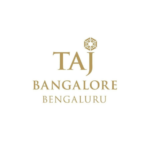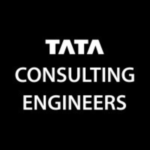सरकारी परीक्षा का महत्व भारत में सरकारी परीक्षा का महत्व किसी भी अन्य परीक्षा की तुलना में अधिक है। ये परीक्षाएं न केवल उम्मीदवारों के ज्ञान और कौशल का मूल्यांकन करती हैं, बल्कि यह भी सुनिश्चित करती हैं कि उन्हें सही सरकारी नौकरी देने के लिए सक्षम हैं। सरकारी नौकरियां भारत में स्थिरता, आय और
The Easiest Way to Get Your New Job
Find jobs, create trackable resumes and enrich your applications.
Recent Jobs
-
-
Front Office Supervisor
The Leela Bhartiya City Bengaluru- Full Time
- Posted 1 year ago
-
-
Planning & Scheduling Engineer
Tata Consulting Engineers Limited, TCE- Full Time
- Posted 1 year ago
-
-
-
-
-
Industrial Trainees For Food & Beverage Production
Baywatch Resort Goa- Full Time
- Posted 1 year ago
-
-
Featured Jobs
Front Office Manager at Fortune Park Panchwati, Kolkata
We are looking for a friendly, professional, and customer-oriented front office manager to join our team. As the front office
Restaurant Manager at DoubleTree by Hilton Hotel Gurgaon - New Delhi NCR
We DoubleTree by Hilton Hotel Gurgaon – New Delhi NCR is hiring dynamic, energetic, passionate and experienced candidate for the
We Hilton Jaipur is hiring energetic and passionate candidates for the position of Hostess. Duties and Responsibilities of Hostess: Welcome
Job opening at Royal Orchid Central Vadodara at Royal Orchid Central
We are hiring energetic, passionate, and experienced candidates at Royal Orchid Central Vadodara for the following positions: Duty Manager (Front
General Manager at Crimson Hotel
We Crimson Hotel Bhilwara Rajasthan is hiring dynamic, energetic, passionate and experienced candidates for the position of General Manager. You
Executive Housekeeper at Crowne Plaza Greater Noida, an IHG Hotel
We are hiring energetic, passionate and experienced hospitality professional for the position of Assistant Executive Housekeeper at Crowne Plaza Greater
Housekeeping Manager at Sayaji Hotel, Kolhapur
We Sayaji Hotel, Kolhapur is hiring a dynamic, energetic, passionate, and experienced candidate for the position of Housekeeping Manager. Job
Front Office Supervisor at ITC Rajputana, a Luxury Collection Hotel, Jaipur
We are hiring an energetic, passionate, and experienced hospitality professional for the position of Front Office Supervisor at ITC Rajputana,
Receptionist Jobs at Apricot Hotels at Apricot Hotels
We are hiring energetic, passionate and experienced candidates for the position of Receptionist at Apricot Hotels. Responsibilities: Greet all guests
Recent News Articles
Fresh job related news content posted each day.

Archita Phukan: From GB Road Survivor to Global Sensation
Basic Info & Background 📈 Rise to Fame 🕯 A Story of Resilience 🌍 The Kendra Lust Connection & Porn Rumors 🤖 Authenticity Controversy – Real or AI? 🎗 Philanthropy & Influence Archita Phukan’s Pictures, Archita Phukan HD, Archita Phukan Photos 🧩 Why She Matters 🔍 FAQs ✅ Final Thoughts Archita Phukan is more than

Big Tits: 2025 Trends, Searches & Adult Content Insights
In the vast universe of adult entertainment, few categories hold as much staying power and global appeal as big tits. Whether it’s mainstream studios, amateur content creators, or subscription-based platforms like OnlyFans, busty content continues to drive massive viewership and revenue. In this article, we break down why “big tits” remains one of the most

Tamilrockers Proxy 2025: Updated List, How to Access Safely & Legal Alternatives
Introduction: What Is Tamilrockers? Tamilrockers is a well-known torrent website that has been leaking the latest Tamil, Telugu, Malayalam, and Hindi movies online for years. Despite multiple bans by governments and ISPs, the site resurfaces through proxy sites and mirror domains. These alternatives allow users to bypass restrictions and access pirated content. ⚠️ Disclaimer: This

TamilMV 2025: Latest Proxy, Working URLs, and Legal Alternatives You Should Know
What is TamilMV? TamilMV is a notorious piracy website that illegally uploads and distributes copyrighted movies, web series, and OTT content across various Indian languages including Tamil, Telugu, Malayalam, Hindi, and Kannada. The platform has gained massive popularity due to its free access to the latest films — often leaked within hours of release. Originally

Top 10 Business Magazines in 2025 Every Entrepreneur Must Follow for Success
In today’s fast-paced and highly competitive business environment, staying well-informed is not just beneficial — it’s essential. Whether you’re launching a startup, scaling a business, or managing a growing enterprise, having access to credible, insightful, and up-to-date information can make all the difference. Business magazines have long been trusted sources of such knowledge, delivering expert










